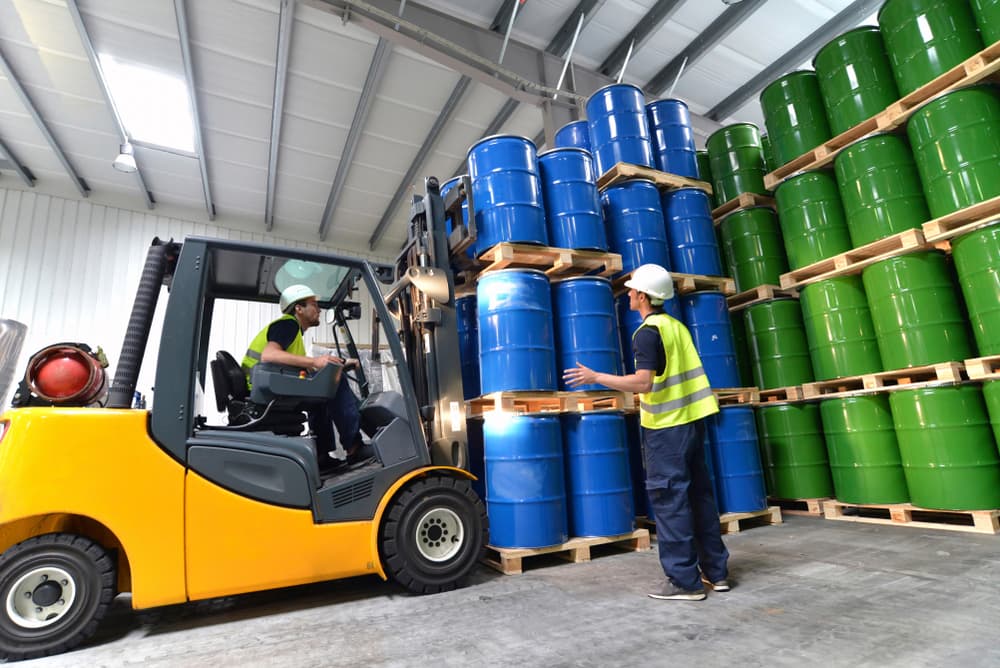When you are shipping chemicals, there needs to be a higher attention to detail and these details ensure everyone’s safety along the way. We are going to jump right in and go over the details of the DO’s and DON’Ts of chemical transport in line haul trucking.
DO – Know your product before you book your load.
- Always provide SDS sheets for the product. There is very important information about the chemical you are transporting that includes all the potential hazards.
- You will want to know what chemicals can or cannot be compatible with, what type of trailer it must be transported in, dry bulk or in a tank, and the wash requirements along with hazmat placards.
DON’T – Never book a load if you do not know the product that is being transported.
- It happens that some shipping reps will book loads and not have all the important product information. If you have a transportation partner, they should have this information. If not, it could ruin a partnership as well be dangerous to the drivers and general public.
DO – Make sure you give all the proper information to your broker and carrier.
- For safe and efficient transportation of chemical products, the transport provider needs this information. The broker needs to be able to quote accurately so the more information that is provided, the better they can quote you within accurate means. The information that should be provided is product details, loading and unloading sites, the project timeline, and the equipment that will be required.
DON’T: Never book loads without communicating the load details to the carrier.
- Details details details… it’s all in the details. Without the carriers and freight brokers understanding what your needs are, can they fulfill the right transportation for your chemical-based product? Make sure you’re not looking for just the best price, make sure you are giving the right details to ensure safe transportation of this product.

DO: Ensure you are prepared for an emergency with extra stock.
- Weather happens sometimes without warning. The worst is when it causes late product arrivals and shortages. Make sure you are always ahead of the game when you know seasonal weather is coming. If you know that it’s about to become winter and we are due for a snowstorm anytime soon, ensure you have the right amount of product and time to get you through these possible delays. Anytime there is an interruption, it can take a long time to reconcile that… and often, these interruptions incur extra costs.
DON’T: Don’t be unprepared when there are interruptions.
- It’s possible that there will be supply chain interruptions when bad weather hits. When roads are bad and highways close, no one can expect any product transportation. Be sure you are prepared on both ends when this happens as it will happen at some point. You will be happy you’re not scrambling at the last minute and you took the time to prepare.
DO: Use a freight broker to find your carriers or vet them well.
- You will know a good carrier from a bad carrier by studying the documentation you request from them such as insurance information, certifications for their drivers, and their operating authority. The information needs to be properly managed and current. It is time-consuming to vet many different carriers to find that perfect fit and very rewarding when you find that perfect match.
- Certain freight brokers have a national carrier network and vet yet carriers for you. This is great because it saves you the time that you could be using to be more productive elsewhere. Plus a broker understands what to look for in regards to credentials, insurance, and certification.
DON’T: Hire a carrier without finding out their reputation.
- Carriers make some mistakes that could cost them in the long run. Sometimes shippers will fast-track a product to move it quickly without properly vetting a carrier. Mistakes happen and, if something went wrong, you want to ensure your carrier has insurance that covers that mistake – otherwise, it’s coming out of the pocket of the shipper.
When shipping chemicals you can see that it is to get things right. Be sure you use this as a guide when looking into things. The safety of the drivers and the general public are extremely important and should be taken very seriously. When dealing with carriers and brokers, just be sure you have the information to give them in regards to shipping of a chemical product and things should go smoothly.
